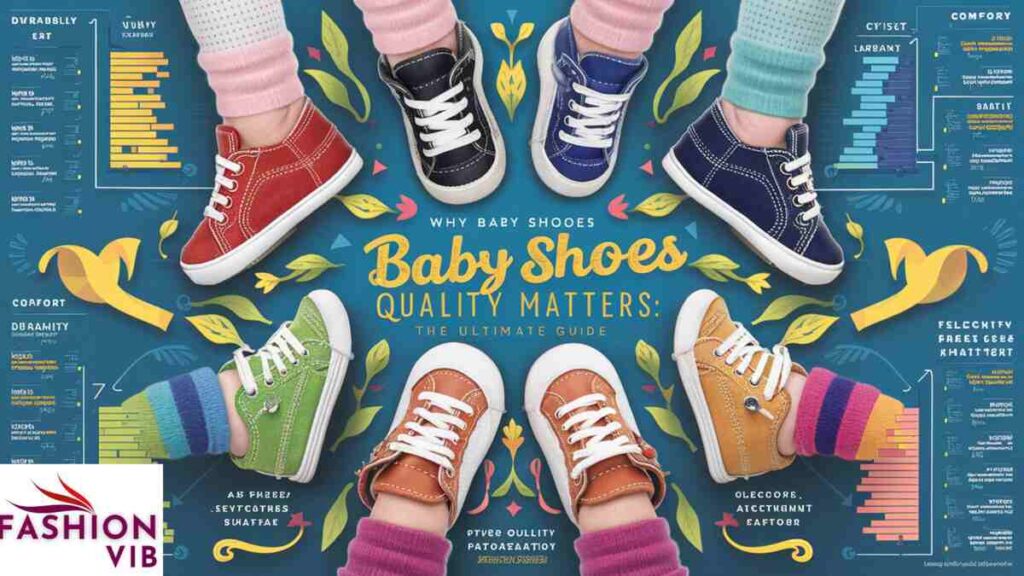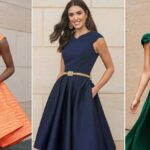When it comes to your baby’s first steps, the right footwear can make all the difference. Baby shoes quality matters not just for style but also because they’re essential for proper foot development, comfort, and safety. Investing in high quality baby shoes ensures your child’s delicate feet are well-supported and protected. This guide dives deep into why baby shoes quality matters, how to care for them, and the trends to consider. Let’s explore why this seemingly small decision has a big impact on your child’s growth.
The Science of Baby Foot Development
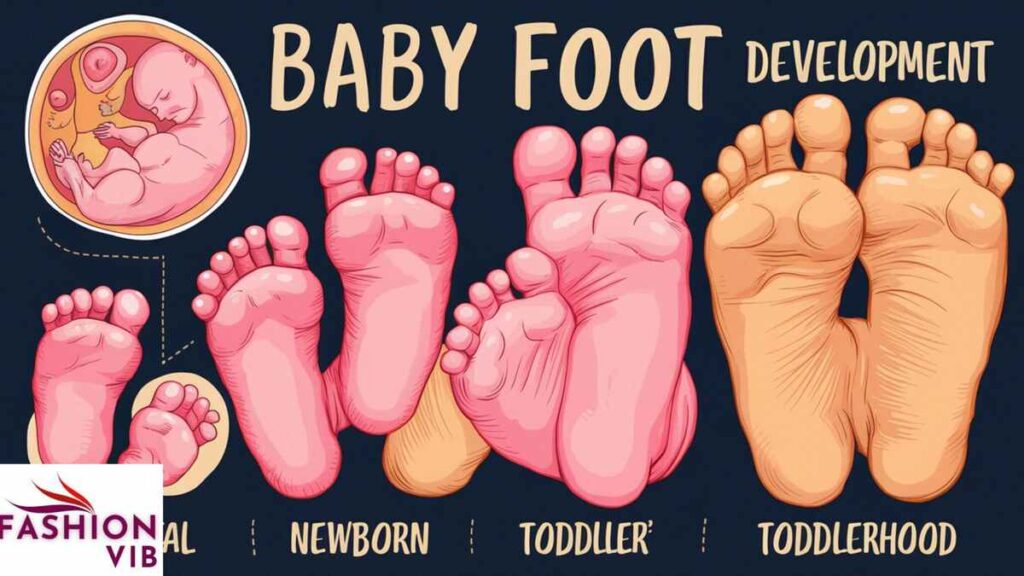
Understanding how a baby’s feet develop highlights why baby shoes quality matters. Unlike adult feet, baby feet are soft, pliable, and full of potential, requiring footwear that supports their growth without restriction. Choosing the right shoes is crucial because baby shoes quality matters in ensuring proper development, comfort, and protection as your little one takes their first steps.
How Baby Feet Develop
- Soft Bones and Cartilage: Babies are born with 22 soft bones in each foot, which gradually harden into 26 by age 5.
- Muscle Development: Crawling, standing, and walking strengthen muscles and improve balance.
- Arch Formation: The arch isn’t fully formed until around age 2.3, making arch support vital during this stage.
Why Proper Footwear Matters
Ill fitting or poorly made shoes can hinder natural development, leading to foot alignment issues, discomfort, or even long term problems like flat feet. Flexible baby shoes provide the support needed for natural movement and growth
Key Features of High Quality Baby Shoes
Not all baby shoes are created equal. Here’s what sets high quality baby shoes apart:
| Feature | Why It Matters |
|---|---|
| Breathable Fabric | Keeps feet cool and prevents sweat buildup, reducing irritation and odor. |
| Soft Soles | Allow for better grip and mimic the natural feel of being barefoot. |
| Arch Support | Encourages healthy development and reduces strain on soft bones and muscles. |
| Non Slip Soles | Prevent slips and falls, ensuring safety during those wobbly first steps. |
| Adjustable Fit | Velcro straps or elastic closures ensure a snug but comfortable fit for growing feet. |
| Durable Materials | Withstand daily wear and tear, making the shoes last longer even when passed down to younger sable |
Risks of Low Quality Baby Shoes
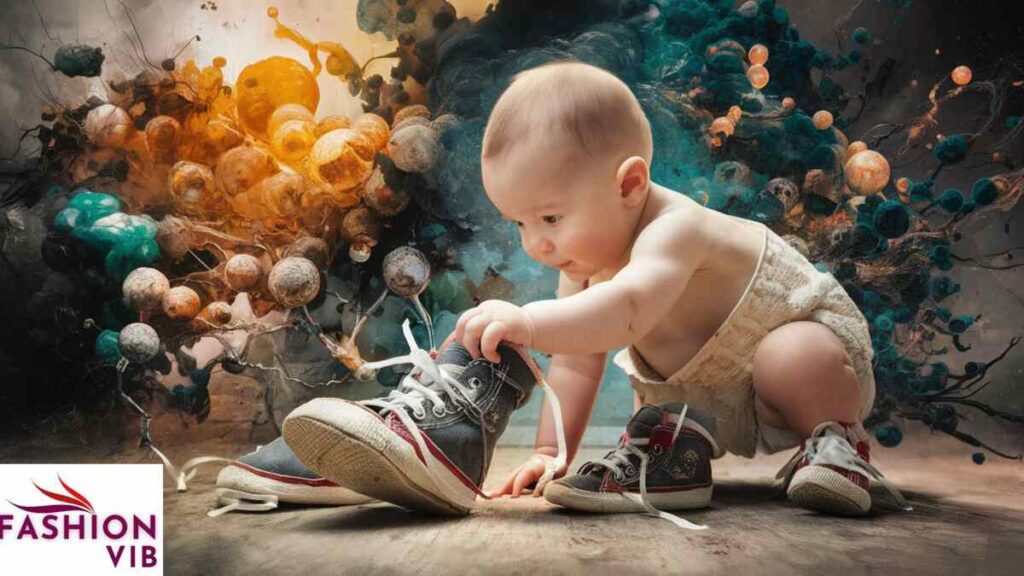
Choosing the wrong shoes can lead to discomfort or even long term issues. Here are the dangers to watch out for:
Physical Risks
- Blisters or Red Marks: Tight or rigid shoes can cause irritation.
- Foot Alignment Issues: Poorly designed soles may impact posture and gait.
- Growth Restriction: Shoes without enough room can compress the foot, hindering development.
Safety Concerns
- Slippery Soles: Cheap shoes often lack proper grip, increasing the risk of falls.
- Harmful Materials: Low quality options may contain chemicals that irritate delicate skin.
Financial Waste
Inexpensive shoes often wear out quickly, requiring frequent replacements. Investing in durable, high quality options saves money in the long run
Signs It’s Time for New Baby Shoes
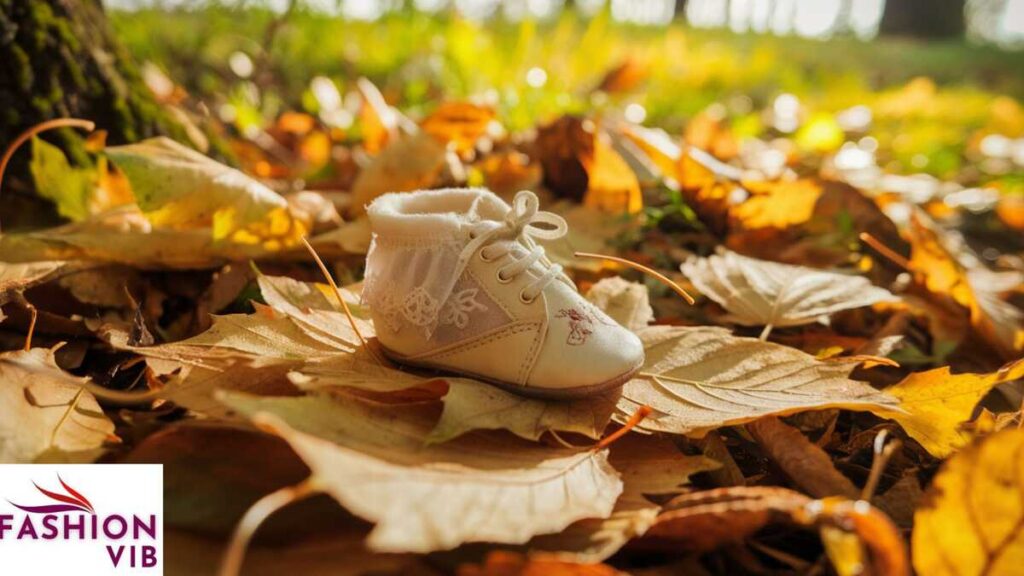
Babies grow fast, and their shoes should keep up. Look out for these signs:
- Toes Pressing Against the Tip: Indicates the shoe is too small.
- Blisters or Red Marks on Feet: Suggests a poor fit.
- Difficulty Putting Shoes On: Shows the shoe no longer fits comfortably.
Growth Timeline
Most toddlers need new baby shoes every 2.3 months. Regularly checking for a proper shoe fit ensures continued comfort and support.
How to Care for Baby Shoes
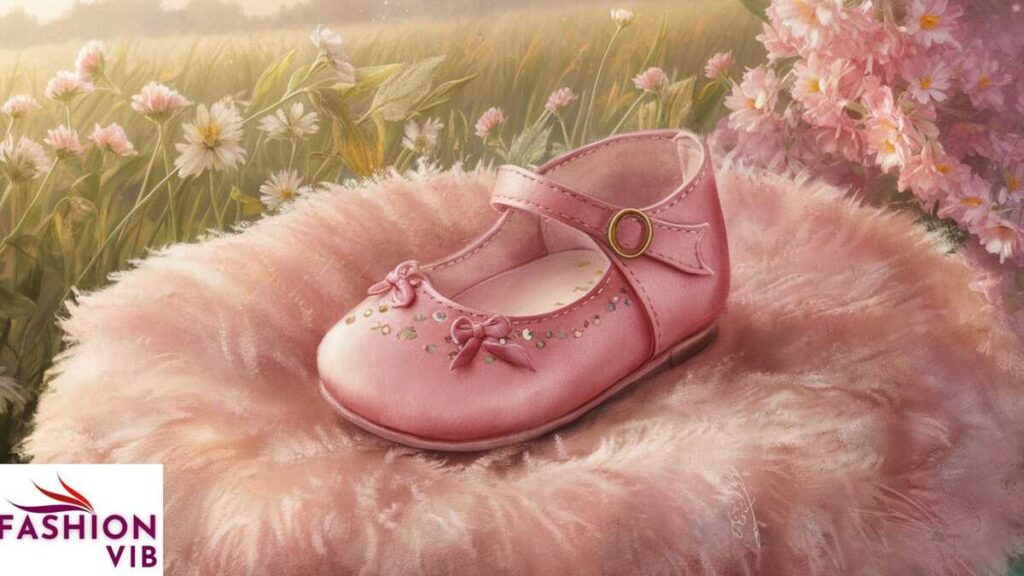
Proper care extends the life of your baby’s footwear while keeping it safe and hygienic.
Tips for Baby Footwear Care
- Clean Regularly: Use a damp cloth for leather shoes and check if fabric ones are machine washable.
- Air Dry Shoes: Avoid dryers, as they can damage materials.
- Rotate Pairs: Alternating between shoes helps reduce wear and tear.
Case Study: Rotating Baby Footwear
A parent alternated between three pairs of leather moccasins for toddlers and found they lasted 50% longer compared to using one pair exclusively.
Popular Trends in Baby Shoes
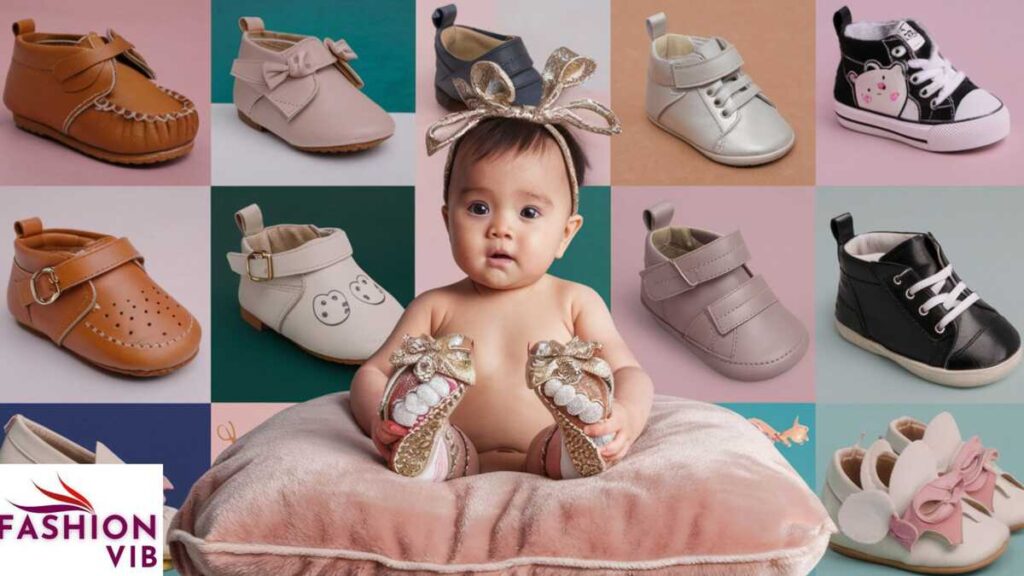
Fashion forward parents want shoes that are both stylish and functional. Here’s what’s trending:
Top Baby Shoe Trends
- Mini Sneakers for Kids: A fun and practical option that provides the support needed for active toddlers.
- Eco Friendly Shoes: Brands are prioritizing sustainability with biodegradable and non-toxic materials.
- Classic Moccasins: Timeless designs that offer flexibility and comfort.
How to Choose the Right Baby Shoes
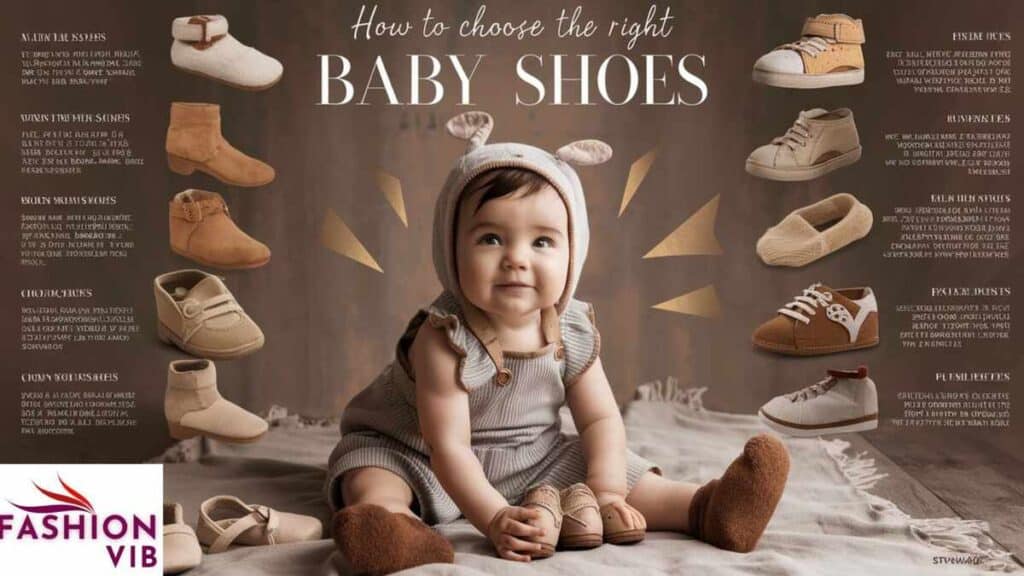
Selecting the perfect pair involves more than just picking a cute design.
Steps to Find the Right Shoes
- Measure Accurately: Use a foot measuring tool to determine size.
- Prioritize Fit: Ensure there’s at least half an inch of space for toe movement.
- Check Flexibility: Bend the sole to ensure it’s not too stiff.
- Look for Certifications: Choose shoes that comply with safety standards, like CPSIA certified options.
Quick Check
Frequently Asked Questions
How do I measure my baby’s feet?
Use a ruler or foot measuring device. Ensure your baby is standing and measure from heel to toe.
Are barefoot shoes better for babies?
Yes, barefoot or flexible shoes allow natural movement while providing essential foot protection.
Can hand me down shoes affect foot development?
Possibly. Worn shoes may not provide the necessary support or fit correctly, which can impact alignm
Conclusion
Choosing high quality baby shoes is an investment in your child’s health, safety, and comfort. From protecting delicate feet to encouraging confident walking, the right shoes set the stage for milestones to come. Prioritize durable, well designed options that combine style and function. By doing so, you’re giving your little one the perfect foundation for a lifetime of adventures.
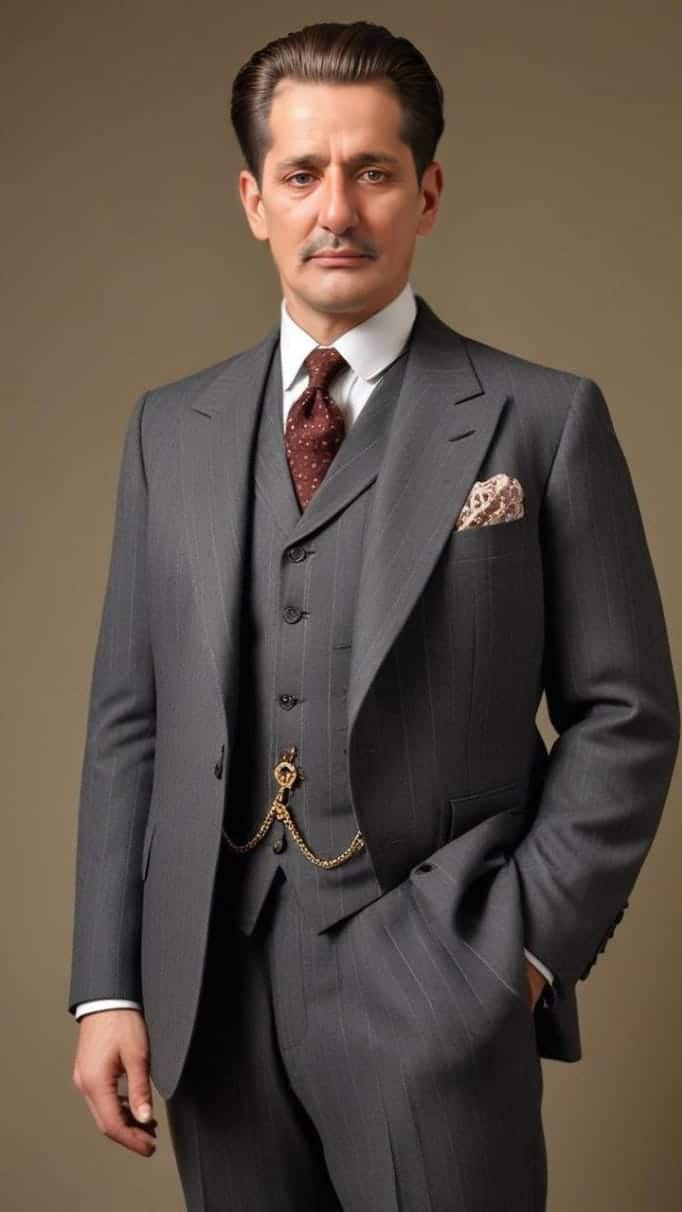
James is a seasoned fashion blogger with over a decade of experience in the industry. His keen eye for trends and insightful commentary make him a trusted voice in fashion. Passionate about style evolution, James combines his extensive knowledge with a unique perspective, offering readers fresh and engaging content. Follow his journey as he navigates the ever-changing world of fashion on Fashion Vib.

